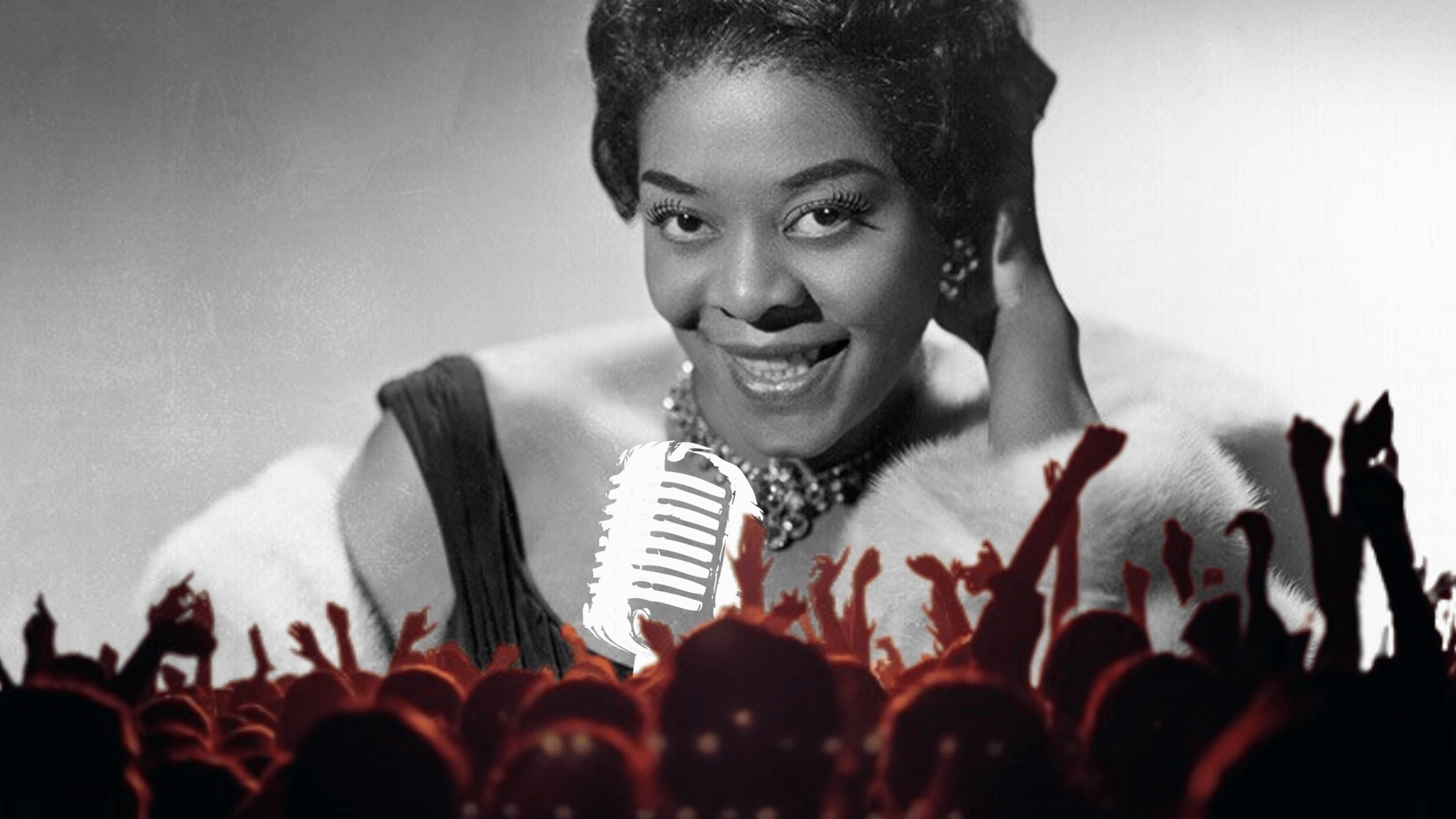In the tapestry of American music, there exists a name that reverberates with unparalleled power, an enigma wrapped in the soulful embrace of Dinah Washington. Her voice, akin to a tempestuous storm, traversed musical genres with unparalleled elegance, etching an indelible mark on jazz, blues, R&B, and pop. However, lurking behind the glittering curtain of stardom was a life that unfolded with both the brilliance of triumphs and the shadow of tribulations.
In this exploration, we embark on a journey through the life and legacy of Dinah Washington, unraveling her early days, the meteoric ascent to fame, the controversies that swirled around her, her most resonant melodies, the shrouded circumstances of her untimely departure, and the enduring riddle she left behind.
Early Days
Dinah Washington was born Ruth Lee Jones on August 29, 1924, in Tuscaloosa, Alabama. She grew up in a family deeply immersed in gospel music, which would go on to influence her style significantly. Her early life was marked by hardship, as she faced the challenges of poverty and a broken family. These difficult circumstances would shape her resilience and fuel her determination to succeed in the world of music.
Ruth began singing in church choirs as a child, and her prodigious talent soon became apparent. Her natural vocal abilities were nurtured by her mother and other family members. At the age of 15, she moved to Chicago, where she joined her father, who had relocated there earlier. It was in the bustling city of Chicago that she would take her first steps toward becoming the iconic Dinah Washington.
Rise to Fame
In the 1940s, Dinah Washington started performing in clubs around Chicago. She initially performed under the name “Ruth Jones,” but it wasn’t long before she adopted the stage name “Dinah Washington,” which was inspired by the legendary blues singer Dinah Shore and the state of Washington.
Washington’s breakthrough came in 1943 when she signed a recording contract with Lionel Hampton’s band. This opportunity marked the beginning of her journey to fame. Her distinctive voice, a blend of sultry sensuality and raw power, captivated audiences and set her apart from other vocalists of her era. She recorded several hits with Hampton’s band, including “Evil Gal Blues,” which catapulted her to stardom.
As her solo career blossomed, Dinah Washington continued to make waves in the music industry. She recorded for several labels, including Mercury and Roulette Records, and released a string of successful albums and singles. Her versatility allowed her to explore various musical genres, from jazz and blues to pop and R&B, making her a favorite among a wide range of listeners.
Controversy
Dinah Washington’s life was not without its share of controversy. One of the most notable controversies revolved around her tumultuous relationships and marriages.
She had a total of seven marriages, which fueled tabloid headlines and public scrutiny. Her turbulent personal life often overshadowed her musical accomplishments, leading to mixed perceptions of her as both a diva and a vulnerable artist.
Suggestion: What Really Happened to Hank Williams?
In addition to her personal life, Washington’s outspokenness and refusal to be confined to a single musical genre also stirred controversy. She faced criticism from purists in the jazz and blues communities who accused her of “selling out” by dabbling in pop and R&B. However, her willingness to experiment with different styles allowed her to reach a broader audience and cemented her status as a genre-defying artist.
Best Songs
Dinah Washington’s discography boasts a wealth of timeless classics that continue to resonate with audiences today. Her ability to infuse deep emotion into her performances is evident in these standout tracks:
- “What a Diff’rence a Day Makes” – This song, released in 1959, remains one of her most iconic hits. Its evocative lyrics and Washington’s soul-stirring vocals make it a masterpiece of its time.
- “This Bitter Earth” – Known for its haunting beauty, this song showcases Washington’s ability to convey profound sadness through her singing. It gained renewed popularity when it was featured in the film “Malcolm X.”
- “Unforgettable” – A duet with jazz legend Nat King Cole, this song showcases the magical synergy between the two artists. Their voices blend seamlessly to create a truly unforgettable performance.
- “Mad About the Boy” – This sultry, seductive ballad exemplifies Dinah Washington’s mastery of torch songs. Her sensuous delivery and emotional depth are on full display in this classic.
When Did She Die?
Tragically, Dinah Washington’s life was cut short at the age of 39. On December 14, 1963, she passed away in her sleep at the Mark Hopkins Hotel in San Francisco. Her death was attributed to an accidental overdose of prescription drugs, and it sent shockwaves through the music industry and her legion of fans. Washington’s untimely demise marked the end of a remarkable career that had left an indelible mark on the world of music.
Conclusion
Dinah Washington’s life and career were a testament to the transformative power of music. From her humble beginnings in Alabama to her rise to international fame, she defied expectations and broke down barriers. Her powerful voice and fearless approach to music continue to inspire artists across genres. Despite the controversies and personal struggles that marked her life, Dinah Washington’s legacy endures through her timeless songs and the impact she had on the world of music.
In the end, what really happened to Dinah Washington was a life lived with passion, talent, and a determination to leave an unforgettable mark on the world of music. She may have left us too soon, but her voice and her music will forever resonate in the hearts of those who have had the privilege of listening to her soul-stirring performances. Dinah Washington, a true icon of American music, lives on as a beacon of artistic excellence and an enduring source of inspiration for generations to come.
